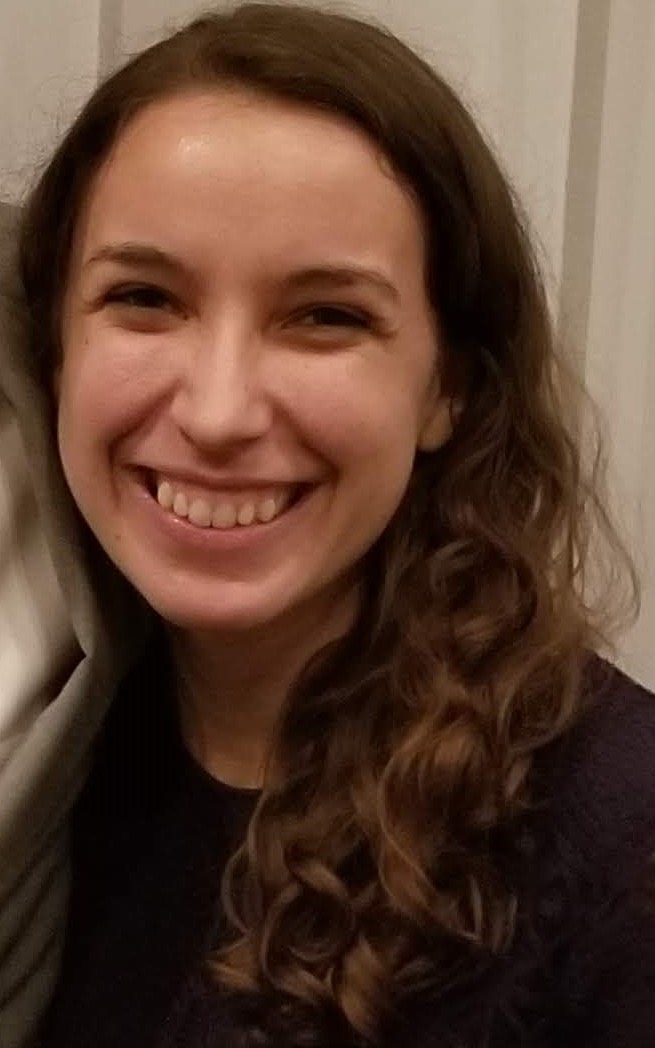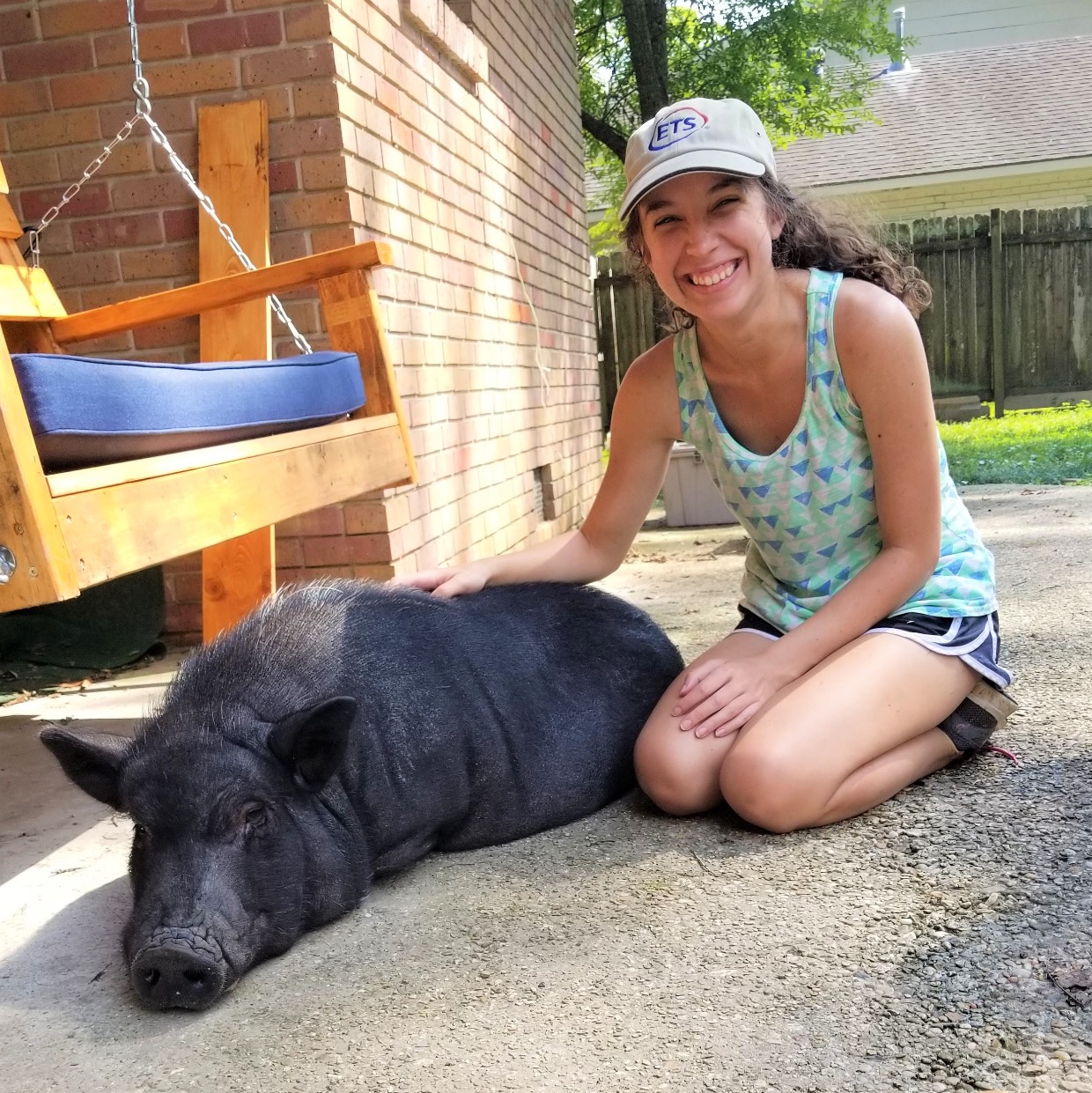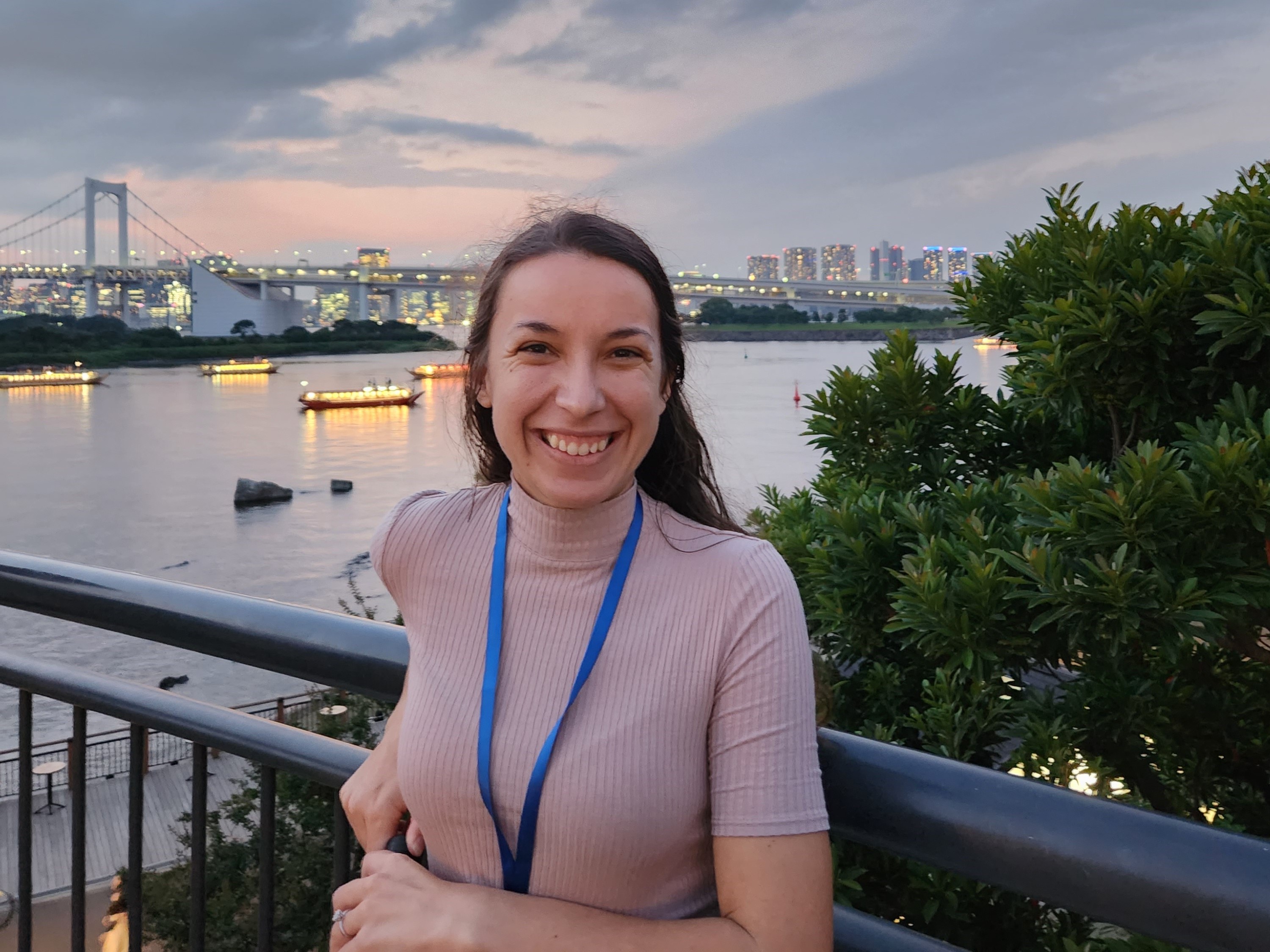Spotlight: Amy Adair
May 08, 2023
Name: Amy Adair
Graduation Year: 2018
Degree: Mathematics, Concentration in Secondary Education
Career:
- 4th Year PhD Candidate in Education at Rutgers University
- West Feliciana High School Math Teacher: Advanced Math, AP Calculus BC, and Intro to Robotics

Amy Adair, GeauxTeach STEM Alumni
Q: What do you do in your current position, and what makes you happy to be doing it?
I'm currently working toward my Ph.D. in Education at Rutgers. I initially applied to work with an education professor at Rutgers that did research in teaching students about proofs, but I love technology. So, I got matched with professor Dr. Janice Gobert, who is also CEO of an education tech company, Apprendis, that develops and productizes Inq-ITS. Inq-ITS is an online platform with virtual science labs that uses AI to assess students' competencies in real time. When working on the Inq-ITS labs, students also receive support from “Rex”, a dinosaur character, that pops up to help when the AI senses the student needs help on certain practice (such as collecting controlled trials).
We recently designed new tasks for Inq-ITS that incorporate more mathematics. Once they collect their data, the students plot it on a graph and fit a curve/line using this tool that manipulates the equation and shifts the line up/down/etc. That helps them to try to come up with the mathematical relationship between the two variables...Recently, we also came up with the Rex messages, what’s called scaffolding. The scaffolding is designed to help the student if they are struggling on these graphing tasks, which is detected by the underlying algorithms.
My dissertation work will look at whether or not that scaffolding is effective at helping those students to get better on their next opportunity...I will also be developing the automated scoring using natural language processing (NLP) techniques, think somewhat along the line of ChatGPT, to understand what the students are writing at the end of the lab so we can assign a score to that part. I am excited [to be doing this research] because I feel like it is a really interesting area to kind of blend more computer science and math topics I have been learning along the way with this education content. It brings a lot of my interests together.

In the summer of 2021, Amy did an internship with the AI Labs at Educational Testing Service (ETS), but because of COVID, the internship was fully online and remote. So, here she is working from home -- wearing her ETS hat with her pet pig Ned by her side!
Q: What are some highlights that you have experienced in your career?
- I received an NSF (National Science Foundation) Graduate Research Fellowship after 1 year at Rutgers.
- In teaching, I might be an oddball here, but I actually liked having multiple preps and being able to teach multiple different styles of classes. At West Feliciana High School, they threw three classes at me, and I felt comfortable saying, ‘Yeah, I’ll take it.’ - In graduate school, I am one of the few that do not have a master's degree coming in [to my PhD program], and because of the classes I have taken [in the GeauxTeach STEM Program], I feel like I am in a good spot to do a PhD in education. The foundational classes of GeauxTeach STEM helped. Philosophy of Science and Knowing & Learning both had certain little research things that came back around and helped me feel prepared for doing education research.
Q: What were the most significant takeaways or benefits you gained during your undergraduate experience?
It was the summer after my freshman year, GeauxTeach STEM had a summer program where students would be paired with a research mentor. So, I got Dr. Frank Neubrander as my research mentor. I was doing math research as a 19-year-old that finished Calc 2/Calc 3. I was also helping out with the math summer camp, Math Circle. I think those experiences were probably the most valuable in the sense of getting familiar with other things that are out there. Like, I didn’t know what math research was. I didn’t even know there were these math competitions, and all of a sudden, I’m helping these students prepare for math competitions. That’s wild. I think it's those kind of experiences that were really cool for me.
Q: What did you learn in GeauxTeach STEM that informs how you think about teaching or how you approach your job? What skills did you learn in GeauxTeach STEM that have benefited you in your career?
- It’s interesting now because I’m very much thinking more about the world of science education than math education since the platform that my advisor has is focused on science. But I think a common theme that has carried throughout is the inquiry-based learning/teaching philosophy. With my current research, it’s about taking that idea of inquiry and understanding how to design and build virtual science labs with that focus on supporting learning through inquiry.
- I guess one big skill we learned in GeauxTeach is the lesson planning, thinking about the 5E’s (Engage, Explore, Explain, Extend/Elaborate, and Evaluate). I still carry those 5E’s with me. I think that’s something they drilled into our heads. I think another takeaway may be the soft skills of understanding how different organizations work, how different schools work. That’s also very interesting, to get a bird’s eye view of all of the schools in the East Baton Rouge area and how different they are [by] just talking to other teachers at other schools or other student teachers [at other schools]...Now, I'm at this university that works with teachers across the country and it’s interesting to see both the similarities and differences between how the teachers and schools from different states are doing things.

Earlier in July, Amy presented a paper at the International Conference on Artificial Intelligence in Education in Tokyo, Japan. While she didn't get a picture of herself presenting, here's a picture of her during an evening tour of Tokyo!
Q: Is there anything else you would like to share with us?
So I had Rebecca Nguyen [GeauxTeach STEM Master Teacher] as my mentor teacher, and she was a fantastic mentor teacher. And I think she is a very valuable asset to have on [the GeauxTeach STEM] team. I think it is really amazing that there are so many future teachers that get to learn from her.
Amy is no stranger to interviews as she was a guest editor for XRDS (Crossroads): The ACM (Association for Computing Machinery) Magazine for Students for their Spring 2023 issue. Check out her article here!